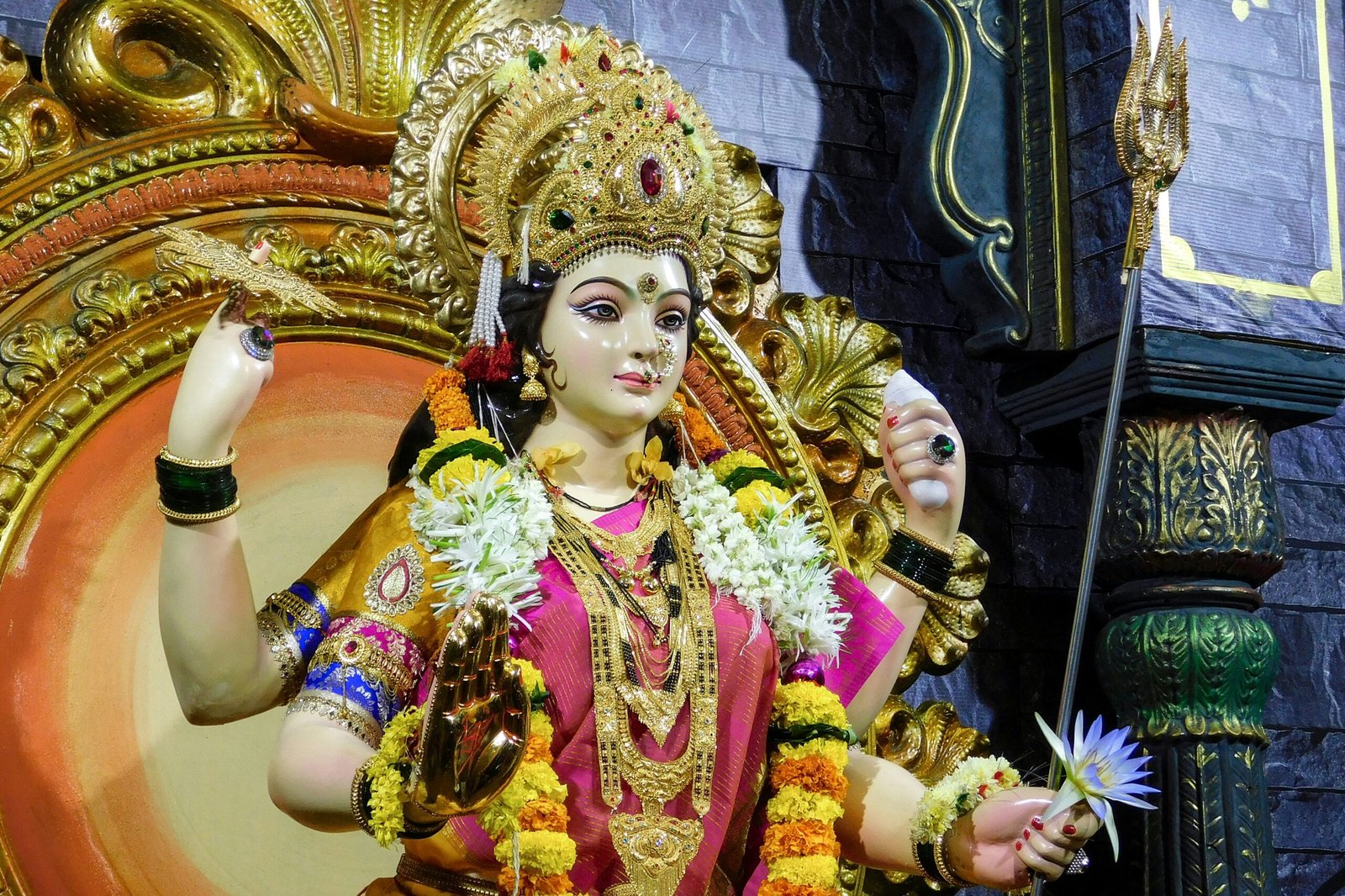Introduction to the Hindu Minority in Bangladesh
Bangladesh, a South Asian nation with a rich tapestry of cultural and religious diversity, serves as home to a significant yet often underrepresented Hindu minority. Historically, Hindus have inhabited what is now Bangladesh for centuries, contributing to its vibrant cultural and social landscape. However, the Hindu population in Bangladesh has seen a marked decrease over the past few decades. According to the 1951 census, Hindus constituted around 22% of the population. Fast forward to recent censuses, and this figure has dwindled to approximately 8%. This demographic shift highlights the dire need to understand the multifaceted challenges facing the Hindu community in the country.
Socially and economically, Hindus in Bangladesh often find themselves at the fringes of society. Reports have frequently highlighted issues such as land grabbing, religious discrimination, and acts of violence against Hindu individuals and property. These incidents not only foster a sense of insecurity but also compel many to consider migration as a viable option for ensuring their safety and stability.
The political landscape in Bangladesh further complicates the plight of the Hindu minority. Despite constitutional safeguards promising religious freedom and equality, political dynamics frequently exacerbate existing tensions. Periods of political instability and the rise of extremist ideologies have occasionally led to targeted attacks on Hindu communities. For instance, the violence during the 2013 and 2021 political upheavals are grim reminders of the vulnerabilities faced by this minority group.
Moreover, the socio-economic challenges are interwoven with overarching systemic issues. Limited access to education, employment opportunities, and healthcare services are among the hurdles that impede the community’s progress. The cumulative effect of these social, economic, and political challenges creates a complex web of adversities that warrant serious attention and intervention.
This overview sets the stage for a comprehensive discussion on potential external support, notably considering the role of neighboring India under the Modi government. By delving into the historical and current status of the Hindu minority in Bangladesh, we can better appreciate the necessity and urgency of targeted interventions aimed at ensuring their well-being and protection.
India’s Historical Support for Hindus in Bangladesh
India’s relationship with Bangladesh has deep historical roots, especially concerning the protection and support of the Hindu minority in the region. One of the most significant examples of India’s involvement came during the 1971 Bangladesh Liberation War. India played a critical role in the liberation of Bangladesh from Pakistani rule, an event that saw widespread atrocities, particularly targeting Bengali Hindus. The Indian government provided military assistance and humanitarian aid, subsequently leading to the creation of a sovereign Bangladesh. This intervention was pivotal in safeguarding the Hindu population, who suffered significant persecution during the conflict.
Since then, successive Indian governments have continued to show support for Hindus in Bangladesh through various diplomatic and policy measures. For instance, in the aftermath of the war, India was one of the first countries to recognize Bangladesh and extend comprehensive aid to stabilize the newborn nation. This gesture helped cement bilateral relations strengthened by mutual cultural and historical ties. Additionally, various bilateral treaties and agreements focused on fostering cooperation and mutual support, particularly emphasizing the protection of minority rights in both nations.
In more recent times, India’s foreign policy has included specific clauses and diplomatic efforts aimed at the well-being of Hindu minorities in Bangladesh. Negotiations on border agreements, cultural exchanges, and economic partnerships have often highlighted the protection of minority communities. Indian policymakers have continually raised concerns about the safety and rights of Bengali Hindus in international forums, reinforcing India’s commitment to their welfare. Diplomatic missions in Dhaka have played an active role in monitoring the situation, providing support, and facilitating dialogues to ensure their security.
In summary, India’s historical support for Hindus in Bangladesh has been multifaceted, involving military, humanitarian, diplomatic, and policy-driven efforts. This longstanding relationship is a testament to India’s commitment to the protection and well-being of its neighboring country’s Hindu minority. As the geopolitical landscape evolves, the continuity of such support remains a key aspect of Indo-Bangladeshi relations.
The Modi Government’s Approach to Foreign Policy and Minority Support
The foreign policy directives of Prime Minister Narendra Modi’s administration have consistently underscored robust national interests while emphasizing the protection and support of Indian diasporas and minorities in neighboring regions. This policy orientation is evident through various initiatives and statements made by the government, which highlight a focused and strategic posture towards minority protection, including support for Hindus outside India.
One significant legislative measure in this arena is the Citizenship Amendment Act (CAA) of 2019. The CAA facilitates citizenship for persecuted religious minorities from Pakistan, Bangladesh, and Afghanistan, specifically targeting Hindus, Sikhs, Buddhists, Jains, Parsis, and Christians. By granting expedited citizenship to these groups, the Act ostensibly reflects the Modi government’s intention to safeguard minorities facing religious persecution in India’s neighboring countries. The CAA’s implications are particularly profound for Hindus in Bangladesh, who have historically encountered discrimination and violence.
Moreover, the Modi administration’s broader international engagement includes vocal advocacy for religious freedom and minority rights. Through various diplomatic channels, India has reiterated its commitment to defending human rights globally. Prime Minister Modi’s speeches at international forums, collaborative efforts at the United Nations, and bilateral discussions with other nations have often included explicit references to the protection of religious minorities.
However, the Modi government’s foreign policy is not solely restricted to legislative measures. Practical actions, such as relief and support for persecuted communities, reflect a more nuanced approach towards international humanitarian issues. The government has occasionally intervened through diplomatic pressure, offers of asylum, and financial aid to ensure the well-being of affected minorities.
In summary, the Modi government’s stance on minority protection, particularly concerning Hindus outside India, is multifaceted. Through the Citizenship Amendment Act and consistent diplomatic advocacy, the administration has signaled a clear commitment to supporting religious minorities. While the CAA has been a contentious topic domestically, its enactment marks a significant step towards addressing the plight of persecuted Hindus in the region. Overall, the Modi government’s approach is indicative of a broader commitment to humanitarian values intertwined with strategic foreign policy objectives.
Future Prospects: What Can Be Expected?
As the Modi government navigates the complex landscape of international diplomacy and domestic policy, several factors will likely influence its capacity to offer substantial support to Hindus in Bangladesh. Politically, the Indian government may choose to bolster support for Hindus in Bangladesh to align with its broader agenda of protecting and promoting the interests of Hindu communities worldwide. This strategy not only resonates with Modi’s electoral base but also underscores the government’s commitment to global Hindu welfare.
Diplomatically, any move by the Modi government to assist Hindus in Bangladesh will necessitate a careful balancing act. The potential international reactions to such initiatives must be considered, especially given the fragile dynamics of South Asian geopolitics. Strengthening ties with Bangladesh remains paramount, and assertive support for Hindu minorities could either fortify bilateral relations or provoke contention with Dhaka, depending on how these measures are perceived and implemented.
Socially, enhanced support mechanisms might include humanitarian aid, cultural programs, and educational initiatives aimed at both preserving Hindu heritage and promoting inclusivity in Bangladeshi society. Establishing robust channels of communication and collaboration with Bangladesh’s Hindu community could serve as a foundation for sustained assistance and advocacy.
Experts in geopolitics and international relations suggest cautious optimism concerning the Modi government’s future actions. With prevailing domestic pressures, the Modi administration could potentially adopt a more proactive stance towards minority protection. However, the administration’s policy maneuvers will likely be tempered by global diplomatic scrutiny and the imperative to maintain regional stability.
In light of these considerations, while the path forward holds promise, it also demands meticulous planning and execution. The implications for India-Bangladesh relations are far-reaching, necessitating strategies that are both thoughtful and contextually aware to foster mutual respect and cooperation.

